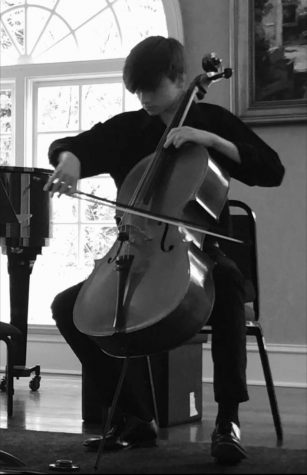Shakespearean Showmanship
More stories from Morgan Watkins
A classroom buzzes with dull noise. Students tap pencils and pens on binders haphazardly overflowing with papers. Pages of oversized textbooks flip over one another.
Suddenly, a teacher steps away from the desk scattered with graded assignments and soon-to-be-read novels. She stops in front of the class and catches everyone’s attention with one word: Shakespeare.
For decades, Shakespearean plays have occupied English classes across the nation. From “Romeo and Juliet” to “A Midsummer Night’s Dream,” these plays from the Elizabethan era have sucked in readers of all ages. Today, however, people have an opportunity to learn about Shakespeare in an innovative way.
Shakespeare’s Tavern offers countless opportunities to educate individuals on Shakespearean works through characterizations, plays and interactive tours.
Since its founding in 1984, Shakespeare’s Tavern has performed every play written by William Shakespeare. Thousands of viewers come to see the actors perform Shakespeare live, including several schools that bring students to Tuesday and Thursday matinees.
The main challenge faced by the actors at Shakespeare’s Tavern is making 400-year-old Elizabethan plays relevant to a modern audience.
“Each one of Shakespeare’s plays is relatable to most of the student population, and almost every story seen on TV or read in a book is from Shakespeare,” high school English teacher Carol Kelley said.
Kelley has taught Shakespeare in the classroom for more than 15 years, introducing her students to plays including “Othello,” “Romeo and Juliet,” “Hamlet” and “Macbeth.” Kelley remembers when the tavern visited APS schools and performed plays for students within their classrooms.
“[The actors] brought Shakespeare to life,” Kelley said.
Many schools throughout the Southeast enjoy the ambiance and acting of the playhouse.
“Putting kids in that position, where the plays were intended to be — on a stage in front of an audience — does the most good in getting across the importance and the genius of the guy,” said Kati Grace Brown, director, administrator and actor at Shakespeare’s Tavern.
Brown has worked at Shakespeare’s Tavern since 2007 and has acted in over 20 plays. She is the creator of the student tour program, which allows children to interact with Shakespeare on a personal level. Both Brown and the playhouse understand that adding life and humanity to a script is the intention of the playwright. Engaging the audience is the objective of the performance.
“Once a play is started, you don’t have the option to close a book,” Brown said. “[Shakespeare’s Tavern] puts kids in the position of the Elizabethan audience.”
Morgan is a senior and this is her first year on The Southerner, but she is excited to be writing. When she is not writing she can be found in the theater...






